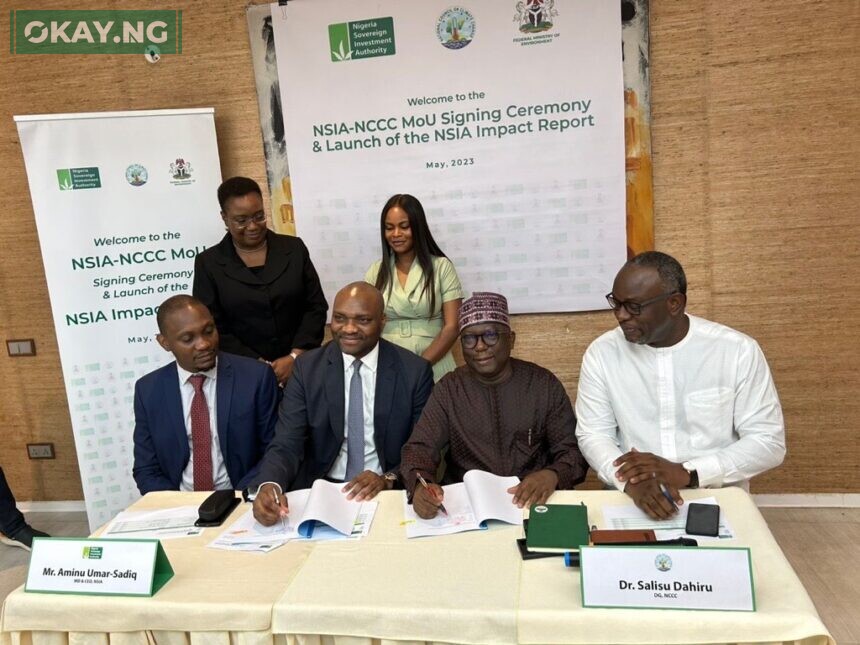The Nigeria Sovereign Investment Authority (NSIA) has entered into a memorandum of understanding (MoU) with the National Council on Climate Change (NCCC) to establish a comprehensive climate change framework and regulatory guidelines for emissions control in Nigeria.
The signing ceremony, which took place on Monday, marked a significant step towards addressing the pressing issue of climate risks in the country.
Aminu Umar-Sadiq, the Managing Director and CEO of NSIA, emphasized the urgency of the agreement and its potential impact on climate change mitigation efforts.
“The collaboration between NSIA and NCCC will play a crucial role in the development and implementation of strategies to support climate change actions and facilitate the energy transition in Nigeria,” stated Umar-Sadiq.
He further explained that the partnership would pave the way for the introduction of a carbon emissions trading mechanism, the management of a national carbon registry, and the establishment of a climate change fund.
Umar-Sadiq highlighted NSIA’s commitment to environmental, social, and governance (ESG) principles, stating, “A core pillar of our ESG strategy is to actively forge strategic partnerships with relevant organizations to support climate change actions and Nigeria’s energy transition ambitions of achieving net zero emissions by 2060.”
In addition to the collaboration with NCCC, the NSIA CEO announced the release of the agency’s inaugural Impact Report (IR).
The report provides a comprehensive overview of NSIA’s developmental and socio-economic achievements as of 2021.
“The NSIA’s maiden impact report showcases the authority’s development agenda and highlights the impact it has had over the years of operation. Furthermore, it underscores NSIA’s commitment to safeguarding the environment and addressing climate-related risks in accordance with best practices,” Umar-Sadiq elaborated.
Salisu Dahiru, the Director-General of the NCCC, hailed the partnership as a strong signal of the government’s dedication to its climate commitments.
He emphasized that Nigeria’s investment of resources from its sovereign wealth fund into climate action and inclusive green economic growth showcased its commitment to future generations.
Dahiru expressed his optimism regarding the collaboration between the two prominent Nigerian institutions.
He stated, “This partnership between two of Nigeria’s flagship institutions is expected to mobilize private finance and accelerate Nigeria’s ambitious climate and national development agenda.”









